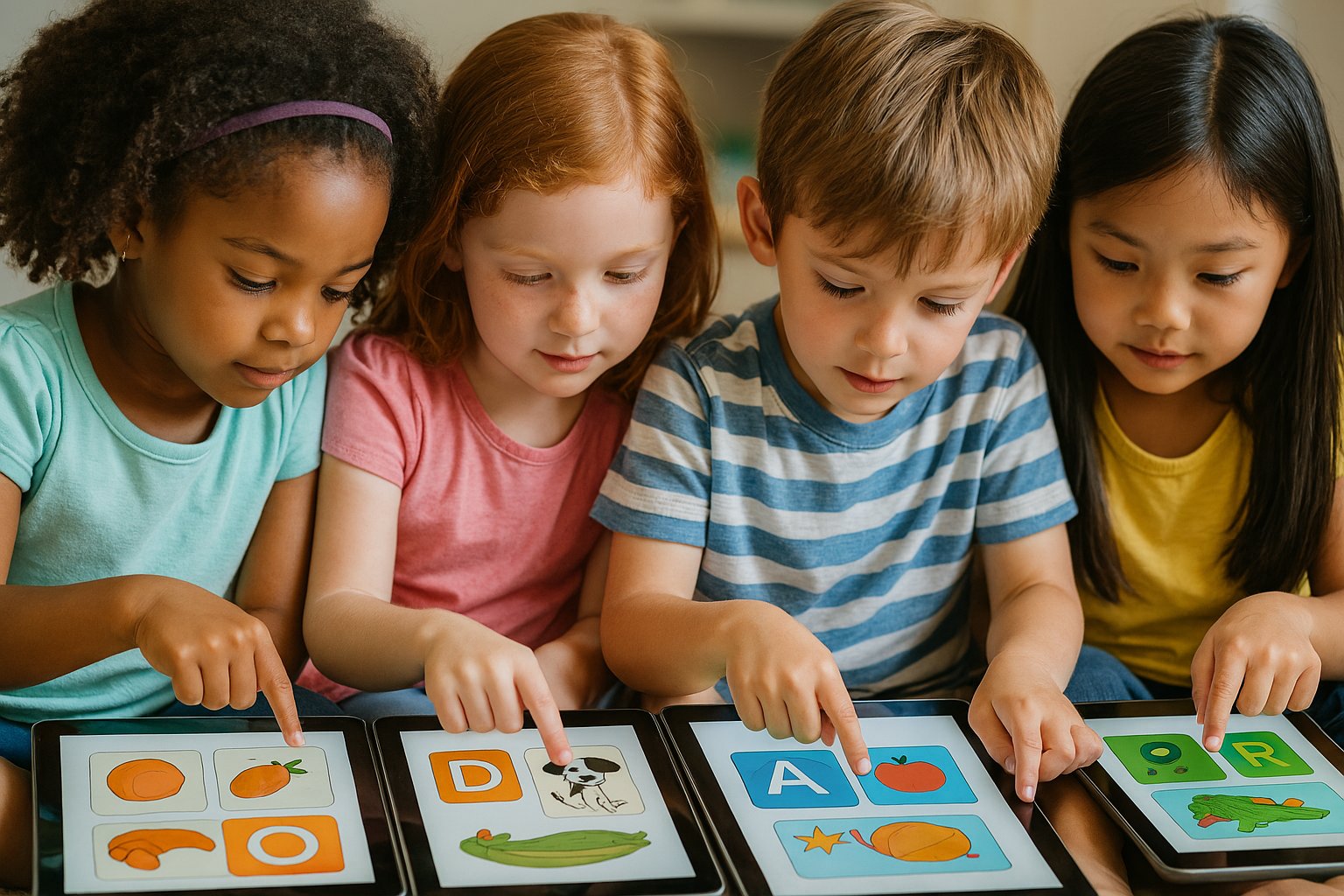
Introduction
In today's digital age, interactive apps and tools have become invaluable in supporting children's literacy development. These resources combine fun and education, making reading an enjoyable experience for young learners. This article highlights the top 10 interactive apps and tools that are making a significant impact in 2025.
1. ABCmouse.com Early Learning Academy
ABCmouse offers a comprehensive curriculum for children aged 2-8, covering reading, math, science, and art. With over 10,000 learning activities, it provides a structured learning path that adapts to each child's level. The platform includes interactive games, puzzles, and songs that reinforce literacy skills. Learn more about ABCmouse.
2. Reading Eggs
Reading Eggs is designed for children aged 3-13 and focuses on phonics, sight words, and reading comprehension. The app offers engaging lessons, games, and e-books that adapt to the child's reading level, ensuring personalized learning experiences. Explore Reading Eggs.
3. Starfall
Starfall is a free public service that helps children learn to read through phonics-based activities. It offers interactive stories, songs, and games that build foundational reading skills. The platform is widely used in classrooms and homes for its effective and engaging content. Visit Starfall.
4. Teach Your Monster to Read
This award-winning app covers the first two years of learning to read, from matching letters and sounds to enjoying little books. It's designed in collaboration with leading academics and is free to use on computers. Check out Teach Your Monster to Read.
5. Epic!
Epic! is a digital library for kids aged 12 and under, offering access to over 40,000 books, audiobooks, and videos. The platform encourages reading by providing personalized recommendations and tracking reading progress. Explore Epic!.
6. Lingokids
Lingokids is an educational app for children aged 2-8, offering a playlearning™ experience with over 600 learning objectives. It includes games, songs, and activities that promote literacy, math, and critical thinking skills. The app is designed to be safe and ad-free, making it a trusted choice for parents. Learn more about Lingokids.
7. Night Zookeeper
Night Zookeeper is an interactive platform that encourages children to develop their writing skills through creative storytelling. It offers a gamified learning experience with personalized feedback, making writing fun and engaging. Discover Night Zookeeper.
8. Quill
Quill provides free writing and grammar activities for elementary, middle, and high school students. It offers interactive tools that help students develop their writing skills through practice and feedback. Explore Quill.
9. Small Wonders
Developed by Harvard's Graduate School of Education, Small Wonders is designed for caregivers and children to use together. It includes games, songs, and activities that promote language development and early literacy skills. Learn about Small Wonders.
10. Reading Rockets
Reading Rockets offers a wealth of resources, including recommended apps, to support children's reading development. The platform provides strategies, activities, and research-based information for educators and parents. Visit Reading Rockets.
FAQs
Q1: How do interactive apps enhance children's literacy development?
A1: Interactive apps engage children through multimedia elements like audio, visuals, and touch-based activities. This multisensory approach caters to various learning styles, making reading more engaging and effective.
Q2: Are these apps suitable for children with learning differences?
A2: Yes, many apps are designed with features to support children with learning differences. For instance, Reading Rockets offers apps that provide practice with essential skills in alphabet knowledge, phonics, spelling, vocabulary, comprehension, and writing, including support for children with dyslexia, ADHD, and autism.
Q3: Can these apps be used without internet access?
A3: Some apps offer offline capabilities. For example, ABCmouse allows users to download activities for offline use, ensuring continuous learning without internet connectivity.
Q4: How can parents monitor their child's progress on these apps?
A4: Many apps include progress tracking features. For instance, Quill provides detailed reports on children's writing skills, allowing parents and educators to monitor improvements and areas needing attention.
Q5: Are there free apps available for literacy development?
A5: Yes, several high-quality literacy apps are available for free. Starfall offers free resources focusing on phonics and reading skills, making it accessible to a broad audience.
Q6: How can I choose the right app for my child's age and skill level?
A6: Consider your child's age, current literacy skills, and learning preferences. Many apps categorize their content by age or grade level. Reading reviews and trying out free versions can also help in making an informed choice.
Conclusion
Integrating interactive apps into children's learning routines can significantly enhance their literacy development. These tools offer engaging, personalized experiences that cater to various learning styles and needs. By selecting appropriate apps and actively participating in your child's learning journey, you can foster a love for reading and set the foundation for lifelong literacy skills.
For additional resources and tools to support literacy development, visit ABZ Learning. Our platform offers a range of materials designed to enhance language acquisition and literacy skills.
